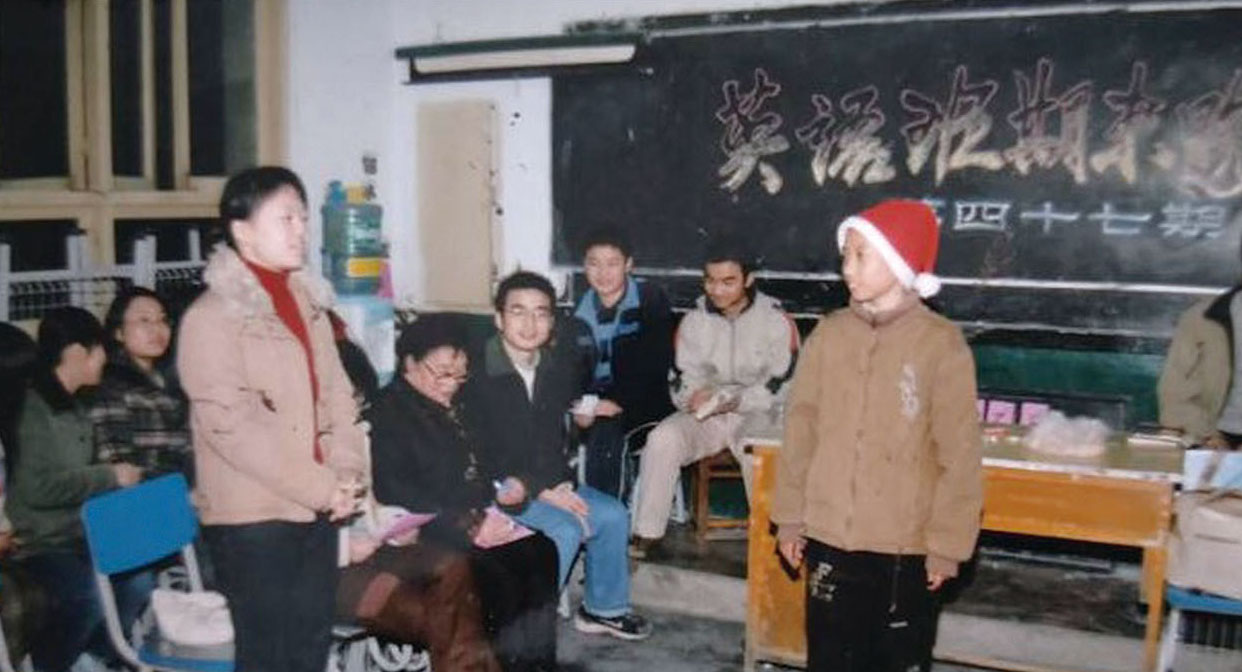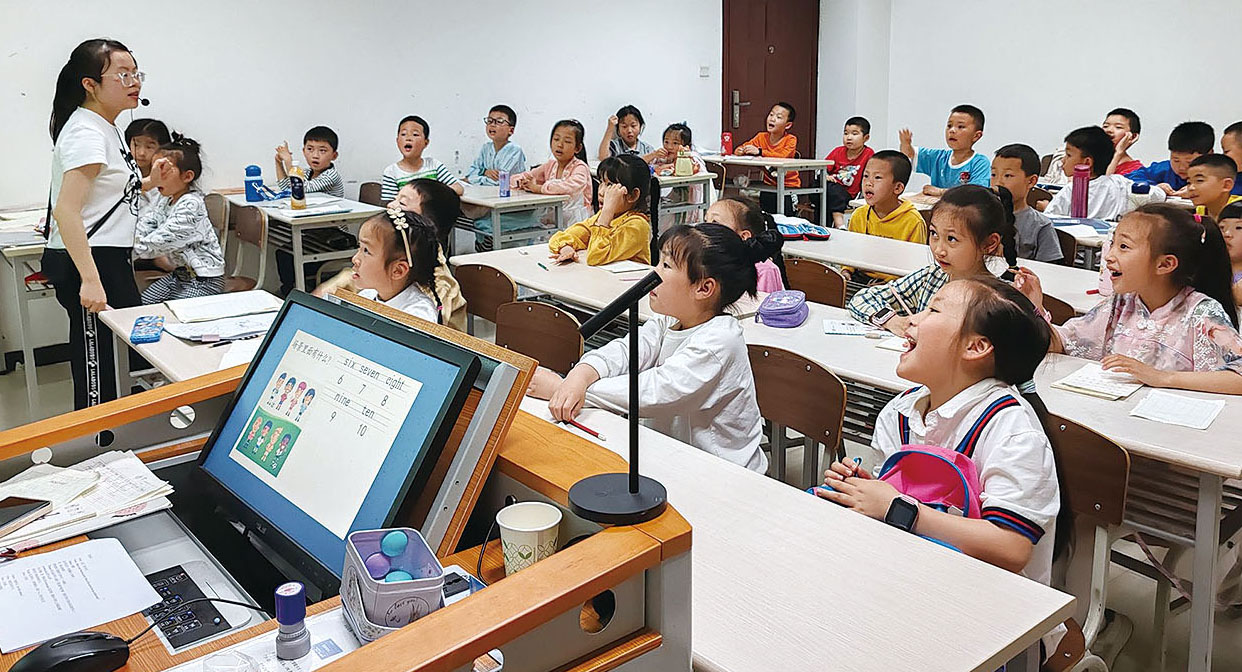For over four decades, dedicated student and teacher volunteers have opened doors to new opportunities through free English education.

The magnolia flower, a precious and unique garden plant native to China, has long resonated with people as a symbol of purity, elegance, and resilience.
These very qualities are reflected in the Magnolia Volunteer Service Group, whose name pays tribute to the flower's enduring spirit. Formed by generations of students and teachers from Southwest University in Chongqing, the group has provided free English language training to the public since 1981, making it one of the longest-running volunteer programs in China.
So far, about 2,500 students and 200 teachers from the College of International Studies have participated in the project, serving more than 6,500 young learners and 4,000 adults.
Though still called the "Sunday English Class", the program is now held on Saturdays to better accommodate children's school schedules.
There are usually 12 classes each semester. Every Saturday evening from 7 to 8:30, around 150 children aged 5 to 12 attend classes on the fifth floor of the College of International Studies.
They are divided into five classes based on their English proficiency, with each class led by two student volunteers — one teaching and the other assisting with classroom management.
Teachers use picture books, cartoons, videos, games, songs, and various other tools to make learning English fun and effective.
"I have never missed a single class in the past five years," said Yang Chenyu, 11, who has attended the program since she was 6. "I like learning English because I want to see a bigger world. The class content here is more interesting and informative than what I learned at primary school."
ALSO READ: Retired educators from Shandong pass on their knowledge in western China
Luo Xiaomei said the free English class is her 5-year-old daughter's favorite. "The volunteer teachers are very committed and know how to engage kids in learning," she said.
"I've signed her up for other classes — boxing, dancing, calligraphy, basketball, and public speaking — but this is the one she loves the most. She never wants to miss a class."
This well-organized and efficient program is run entirely by the Magnolia Volunteer Service Group, which now has 20 members — 10 in teaching roles and 10 handling management — according to managing director Zhu Nana, a sophomore majoring in English.
Zhu taught the class during her freshman year and now leads the group, responsible for selecting student teachers, overseeing operations, and communicating with parents.
"There's fierce competition for teaching spots — everyone wants to be part of this legendary program," she said.
"We select candidates based on their academic performance, teaching ability, and communication skills."
Since many graduates from the university go on to become teachers at primary and secondary schools, the program also offers students hands-on teaching experience, she added.
Recently, international students at the college have also joined the volunteer initiative.
Aleksandra Vziatkova, 22, a Russian student in the Teaching Chinese to Speakers of Other Languages (TCSOL) program, has taught the English class four times this semester.
"I really enjoy interacting with Chinese students," she said. "I'm very happy to be part of the program, which offers me valuable insight into the Chinese education system."

Passing the torch
The story dates back to 1981, when China was just starting to open to the world and English learning was gaining popularity across the nation.
However, there was a serious shortage of English teachers and learning materials.
In response, two retired engineers, Chen Lingfeng and his wife Yi Qigui — both of whom had returned to China from overseas — decided to offer free English lessons in their own living room to help more people learn the language.
At that time, most people in China only had Sundays off, so the class was held every Sunday and soon became known as the "Sunday English Class".
The couple wrote and printed all the teaching materials themselves, while students brought their own stools and crowded into the small living room, eager to study and improve their English.
As the word spread, the number of students quickly grew, and the living room could no longer accommodate everyone.
Fortunately, English teachers and students from the nearby Southwest University (then called Southwest Normal University) learned about the program and stepped in to help.
They volunteered as teachers and provided classrooms, allowing the Sunday English Class to continue and expand.
"Many professors and staff members at our college have taught in the Sunday English Class, including myself," said Yan Yi, a former English major and now Party chief of the College of International Studies.
"We are all very proud of this volunteer experience, and it has become a significant legacy of the college."
After Chen passed away in 1993, his wife Yi continued managing the project on her own. In 2010, at the age of 72, she handed the program over to the college, which established the Magnolia Volunteer Service Group to carry it forward.
ALSO READ: Education equality one lesson at a time
Unlike costly private English training programs that typically charge 20,000 to 30,000 yuan ($2,780 to $4,170) per year, the free Sunday classes give children from humble backgrounds a chance to improve their English, said Mei Shengli, deputy Party chief of the College of International Studies.
"We'll keep this volunteer program going for as long as we can to provide equal learning opportunities for children," he said.
In the future, the program plans to incorporate artificial intelligence technology and invite more international students to participate, Mei added.
Contact the writer at tanyingzi@chinadaily.com.cn


